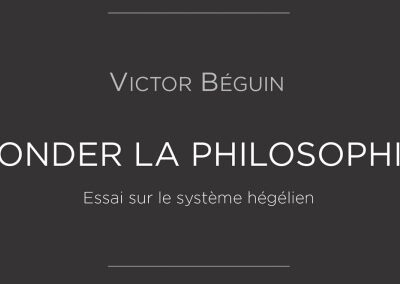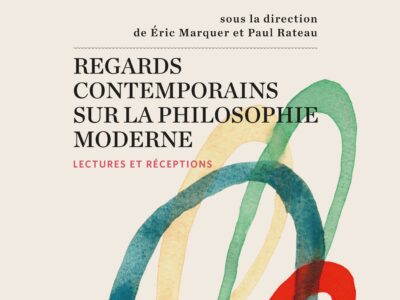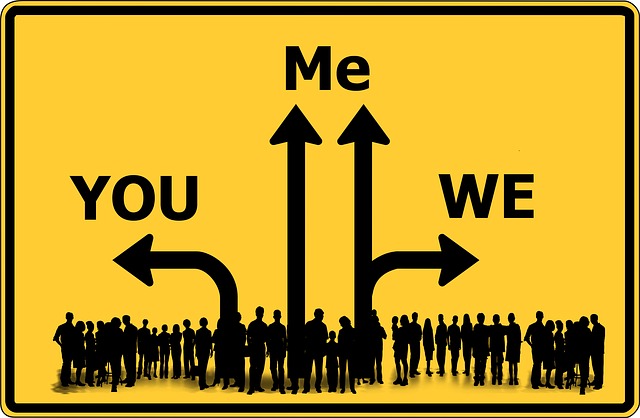Beyond the Genetic Panopticon?
The limits of government intervention on citizens’ bodies
Anne Brunon-Ernst (Panthéon-Assas University and Centre Bentham)
The phrase « genetic panopticon » is a quote from Justice Scalia’s dissent in the US Supreme court case King v Maryland (2013). The case investigates whether DNA collection, processing and identification after arrest (but prior conviction) constitutes a reasonable search under the Fourth Amendment to the US Constitution. In a sharply worded dissent, Justice Scalia notes that DNA collection on Mr King (the respondent) was not for identification purposes. In his mind, the 5-4 decision is likely to allow DNA collection for minor offences in the future and to become as widely used as fingerprinting. Scalia criticized the decision strongly:
Today’s judgment will, to be sure, have the beneficial effect of solving more crimes; then again, so would the taking of DNA samples from anyone who flies on an airplane […], applies for a driver’s license, or attend a public school. Perhaps the construction of such a genetic panopticon is wise. But I doubt that the proud men who wrote the charter of our liberties would have been so eager to open their mouths for royal inspection.[1]
The panopticon was formulated by the British philosopher Jeremy Bentham (1748-1832) as a circular building of cells with a central inspection tower. The main purpose of the structure is to make the inmate behave as the institution wishes him/her to, as s/he believes that s/he is monitored at all times. The purpose of the present paper is not to assess the use of Bentham’s iconic prison scheme to describe present-day arrest, booking and identification procedures. I have criticized such use elsewhere.[2] The aim here is quite the opposite, as the present contribution looks into the discursive strategy chosen by Justice Scalia when using the panopticon reference. For civil rights groups and libertarians, the panopticon works as a threshold, beyond which government intrusion on citizen’s bodies is considered unacceptable. The reference to Bentham’s scheme points very clearly to the fact that, in Justice Scalia’s eyes and in that of the Justices who concurred with his dissent, that threshold was reached in the King v Maryland decision. Nonetheless here the meaning of the phrase « genetic panopticon » is to be understood beyond its topical use in King v Maryland. It is a system of management, which aims to control individual behavior through the use of their genetic data, whether or not in a criminal context (booking, general identification, medical screening, reproduction etc).
It is appropriate to issue some caveats. There is more to the panopticon scheme than just the embodiment of a totalitarian threshold. The panopticon – and for that reason the genetic panopticon – is not the only way in which an individual can be made to alter his or her behavior. Bentham’s theories offer a wide range of legal and non-legal options that can be used to engineer citizens towards the required goal. The panopticon, as part of a general system of post-modern governance, raises the issue of where the red line should be drawn between morally acceptable government intervention on our bodies and gross infringement to our rights. Bentham offers a two-step process to resolve the issue: first to determine the rationale for action and second to select the appropriate means. A third section will draw the limits of a post-modern genetic panopticon from Bentham’s analysis.
(1) When should government intervene in citizen’s lives?
Paradoxical though it may seem, the inventor of the panopticon firmly believed that happiness was the only aim the legislator should have in mind. Bentham opens up the second paragraph of Introduction to the Principles of Morals and Legislation with a statement to that effect:
The principle of utility is the foundation of the present work […]. By the principle of utility is meant that principle which approves or disapproves of every action whatsoever according to the tendency it appears to have to augment or diminish the happiness of the party whose interest is in question: or, what is the same thing in other words to promote or to oppose that happiness. I say of every action whatsoever, and therefore not only of every action of a private individual, but of every measure of government.
How does the legislator promote happiness? S/he does so by opting for the policy more likely to increase pleasure and diminish pain. The first criteria allowing government intervention in people’s lives is that government policy should maximize pleasure and/or minimize pain.
Once a given policy has been identified as happiness-enhancing, the legislator needs to ensure that the his/her mandates will be followed to produce the desired effect. S/he does so by including provisions that make it in the best interest of individuals to follow rules. Pleasures and pains are perceptions that shape interest.[3] To follow one’s interest is to avoid pain and to seek pleasure. Through the wise use of rewards and punishment, the legislator controls the interests of the people who are subjected to his/her power. Fear of legal punishment (or legal sanction) in case of breach is one of the motives of human action and one way to ensure that the will of the legislator is obeyed as explained in section 2 (a) below. But the legislator can also use other instruments,[4] among which rewards, as in sections 2 (b) and (c) below.
The choice of a provision is not neutral, as the implementation of a policy will create pain (pain of punishment in case of disobedience, pain of being prevented from carrying on certain criminal activities etc). The implementing measure should eradicate the unwanted behavior and should not create more pain than it is seeking to remove. In cases where punishment creates more pain for the offender than the offence itself inflicted on the victim and society, punishment should not be imposed. This is the case Bentham explores in respect to homosexuality, which was classified as an offence at his time.[5] Another example is that of addictions where an individual’s behavior causes him/her to endanger his/her long-term happiness (to gratify his short-term pleasure), generally without causing any harm to another member of society.[6] Bentham summarizes cases where the legislator should not implement penal laws as follows: « 1. Where punishment would be groundless. 2. Where it would be inefficacious. 3. Where it would be unprofitable. 4. Where it would be needless. »[7]
When a case is unmet for punishment then the legislator should refrain from using legal instruments to act. It follows from these first criteria that government intervention in people’s lives can be allowed when it will lead to a pleasure-enhancing change. Therefore the implementing measure chosen will need to be effective to maximize happiness.
(2) What instruments should governments use to act?
Once the legitimacy of government intervention has been established, the legislator needs to choose an instrument to implement his/her policy. Depending on the type of act the government seeks to promote or discourage, it has three types of instruments at its disposal: (a) direct legislation, that is penal measures; (b) public ethics, as private ethics is beyond the reach of government interference; and (c) indirect legislation.
(a) Direct legislation
Direct legislation is understood as the body of laws passed by the legislator. Bentham’s concept of law has a much wider meaning than that given by other jurists, as it includes any mandate given by an individual to another, where there is a relationship of obedience and where the order will be enforced by the courts in case of disobedience.[8] An order given by the Monarch or a piece of legislation passed by Parliament is as much an instance of direct legislation as the order given by the master to his/her servant, in the course of business, or a parent to his/her underage child. In the first series of examples, the law is made by conception, and in the second by adoption.[9] What makes a law a law, is not only who orders whom, since (almost) anyone can make laws as long as s/he can see his/her will enforced. What is paramount in defining a law is whether there are means to enforce the rule in case of non-compliance. Thus the punishment of the legal sanction[10] creates pain and lies at the heart of direct legislation.[11]
Nowadays, legal sanctions are used extensively to promote collective happiness. For example, white-collar crime might have a lasting impact on the livelihoods and the retirement schemes of many citizens. In the UK, the Insolvency Act 1986 penalized some types of frauds. On winding up a company, fraudulent trading occurs when the business has been carried out with the purpose of defrauding creditors.[12]
(b) Public and private ethics
In cases where the punishment would be disproportionate to the offence, Bentham turns down any penal option, but this does not mean that he strikes a non-interventionist pose. As the aim of utility is to maximize individual happiness, Bentham’s deontologist steps in to teach individuals to calculate their long-term interest and desist from the short-sighted pleasure-giving activity. Here the method used is no longer punishment but education and reasoning.[13]
Within ethics, Bentham makes a distinction between private ethics and public ethics. The former is limited but clearly defined as all that which does not belong to the realm of public ethics; and the latter is the reserved field of action of the legislator. There are areas where the legislator is allowed to act to promote behavior that will maximize individual pleasure, but without resorting to penal instruments. Bentham goes through the list of virtues to be promoted (prudence, probity and beneficence), to find that prudence and probity only belong to the realm of public ethics.
Nowadays, the legislator acts as a deontologist when s/he promotes thrift, through information campaigns, which stress the need to minimize waste and maximize recycling. This is an example of how an advertising campaign is a legitimate way to maximize individual happiness in the field of public ethics.[14]
(c) Indirect legislation
Direct legislation uses legal punishment; ethics uses reason; indirect legislation uses any non-legal means to make individuals act as the legislator wishes them to. The meaning of the concept indirect legislation is far from self-evident and calls for explanation. Contrary to direct legislation, indirect legislation is not grounded in legal punishment. Indirect legislation deals with incentives and prevention.[15]
Indirect legislation can be defined as any attempt by the legislator to influence the conduct of others, without legal punishment in case of non-compliance. What is the scope of « attempt to influence » in the definition above, that is, what are the methods used in indirect legislation to control individuals? As direct legislation rests on the legal/political sanction, and the disposition to obey, so does indirect legislation rest on the combined forces of incentives and popular/moral sanction, the latter being when members of society pass a judgement on other’s acts and model their behavior towards that other individual accordingly and vice-versa.
In Traités de legislation civile et pénale. Bentham gives three areas in which indirect legislation can have an impact. The first aims to deprive an individual of the power of behaving in a way the legislator does not wish him/her to. Bentham does not think this method very efficient, naming it the « nanny policy »,[16] but nonetheless considers it as part of indirect legislation. The second seeks to circulate knowledge, so that, thanks to a wider understanding of facts and of the consequences of one’s actions, individuals will be more likely to make the right decision for themselves. The third, and most important tool of indirect legislation, are inclinations.[17] Inclinations are indeed paramount, as they are the reasons why individuals decide to act (motives). There are different ways of directing inclinations, each society, in a particular place and at a particular time, has its own, since each generation has its own range of values and modes of life. Some of the examples given by Bentham are embedded in his own time and some are still topical: controlling people through pay, awarding honours to reward certain types of behavior, regulating data-saving,[18] promoting public education rather than private, freeing the press, indemnifying the victims of crime etc.[19]
Indirect legislation channels motives in certain directions thanks to the combined or alternate operation of power, knowledge and/or inclinations. However, in order to be fully effective, the inducements provided by indirect legislation need to be backed by sanctions. Of Bentham’s sanctions, only the popular/moral sanction, through the Public Opinion Tribunal (POT), is operative here.[20] Bentham trusts individuals or groups of individuals, through the credit or discredit they will cast on certain types of behavior, to promote certain actions and discourage others. These individuals are gathered into a fictional and temporary tribunal called POT, which is a self-regulating principle in society, according to the values of a given community on a given issue at a given time.[21] The POT is the body which hands down the popular/moral sanction against deviating groups or individuals.
One telling example is the public shaming of seaside home-owners in New Jersey (USA) to grant easement to allow the federal government to build a huge dune along the shore to protect communities from hurricanes.[22]
(3) Is the genetic panopticon a legitimate means to maximize happiness?
How can Bentham help circumscribe the limits of a post-modern « genetic panopticon »? Two issues need to be considered. The first relates to the relationship between panopticon and other policy instruments used by Bentham. The second looks into the competing claims of privacy and security. A third section aims to provide some guidelines inferred from Bentham’s theories.
(a) How does the panopticon fit into Bentham’s typology of implementing instruments?
The panopticon is not strictly a penal tool as the structure can house any person in need of surveillance,[23] that is workmen/women, convicts, paupers, school pupils, and even civil servants and public ministers. It is set up by an Act of Parliament, but the rules governing the workings of the institution are not laws by conception, but by adoption, in Bentham’s sense; and would not be considered as laws at all nowadays. Most of its action – and its efficiency – relies on non-legal means: ethics, certainly as the structure aims to promote prudence and probity, but more generally indirect legislation. The panopticon is deeply rooted in indirect legislation.[24] Similarly, the « genetic panopticon » also lies at the crossroads of an array of policy measures which are not only penal in nature (general identification, medical screening, reproduction etc).
(b) Competing goals for happiness: privacy vs security
Justice Scalia states the moral dilemma set by King v Maryland as follows: Does the benefit of solving more crimes justify the downside of authorising genetic collection on certain individuals in certain circumstances? In other words: Where does one draw the line between security and privacy?
The first principle Bentham teaches is to look at the aim of the policy. King v Maryland aims to increase the number of solved crimes, thus bring peace to bereaved families and deter other (would-be) criminals from committing crimes, as detection rates would increase. The decision King v Maryland fulfils the first criteria.
The second criteria involves the means used to implement the happiness-enhancing rule. Justice Scalia seems to revolt at the compulsory nature of the provision (« open their mouths for royal inspection »), but the issue is not so much whether the provision hurts the feelings of people subjected to it as whether (i) it is efficient in deterring crimes and whether (ii) it does not produce more pain than it seeks to avoid. To answer question (i), as long as individuals are rational enough to consider the consequences of their crimes before committing them, then a greater assurance of detection might have an impact in reducing crimes (of course in real-life situations, individuals do not necessarily act rationally). The issue raised by question (ii) remains unresolved and is up to society as a whole to arbitrate the competing aims of security and privacy. Here again, Bentham might provide an answer.
(c) Bentham’s utilitarian politics
Bentham’s system of government and his legitimization of government intervention relies predominantly on data collection, since a government act is legitimate if it reaches its policy aim, while maximizing pleasure and minimizing pain. As there is a need to assess the efficiency of a policy, data needs to be collected to evaluate the effects of a policy on individual and collective happiness. Equally, the « genetic panopticon » collects genetic data for all types of purposes. If one may argue that the process of collecting data itself is neutral, what the legislator does with the data is not. Justice Scalia’s perspective was on crime punishment. His focus was on retributive justice. If a moral consensus might emerge from the use of genetic data to punish criminals who have destroyed lives, as the 5/4 King v Maryland decision itself exemplifies, some uses of genetic data might be far less palatable to a majority of US citizens. Bentham’s indirect legislation, contrary to direct legislation, does not focus on retribution, but on prevention. In the field of indirect legislation, data collection would serve as a much more powerful tool than today’s use of statistics to evaluate the likelihood of an individual to develop some diseases or to resort to violent behavior. This leads to genetic discrimination, whereby individuals are denied access to a whole range of services (job, insurance policy, housing etc.) on grounds that they are more likely than others to develop some disease, for example, thus be a financial burden for the community they are part of.[25]
Once genetic data has been collected from individuals, on a variety of grounds, the issue is then whether it can be guaranteed that they will not be used for other purposes than that for which they have been « legitimately » collected. Commentators of Scalia’s « genetic panopticon » phrase have not been mistaken as to the impact of King v Maryland on individual freedoms.
Conclusion
Sections (1) and (2) of the present paper have aimed to show that the panopticon scheme needs to be read within Bentham’s overall philosophy on why, when and how governments are entitled to intervene in individuals’ lives. Bentham has a much wider approach to population control than the panopticon. Direct legislation punishes, ethics persuades and indirect legislation rewards. Section (3) applied Bentham’s typology of implementing instruments to Justice Scalia’s « genetic panopticon ». The « genetic panopticon » is seen as a wide-ranging scheme to collect genetic data. The input of Bentham’s perspective is to understand the implications of data collection when done with a view to preventing unwanted behavior rather than punishing it. When dealing with prevention, it is much more difficult to legitimize mandatory data collection regarding the prevention of the increased likelihood of crimes (or diseases etc) in certain individuals. By overturning the perspective on data collection, Bentham provides arguments to challenge the rationale of the majority opinion in King v Maryland.
[1] 569 U.S. ___ (2013) at p. 18.
[2] See A. Brunon-Ernst (ed.), « Epilogue: The Panopticon as a Contemporary Icon ? », in Beyond Foucault, New Perspectives on Bentham’s Panopticon, Aldershot: Ashgate, 2012.
[3] J. Bentham, Introduction to the Principles of Morals and Legislation, in The Collected Works of Jeremy Bentham, Oxford : OUP, 1996, p. 42.
[4] Instrument is defined by Ringling (1983) as ‘a collection of policy activities that show similar characteristics focused on influencing and governing social processes’, quoted in B. G. Peters and F. K. M. Van Nispen, Public Policy Instruments : Evaluating the Tools of Public Administration, Cheltenham: Edward Elgar, 1998.
[5] For a discussion on sexual offences and a bibliography, see Chapter 1, in A. Brunon-Ernst, Utilitarian Biopolitics: Bentham, Foucault and Modern Power, London: Pickering and Chatto, 2012.
[6] M. Quinn, « The Fallacy of Non-Interference: Poor Panopticon and Equality of Opportunity », Journal of Bentham Studies, 1 (1997): 3, online edition at http://ojs.lib.ucl.ac.uk, accessed on September 6th, 2013.
[7] J. Bentham, Of the Limits of the Penal Branch of Jurisprudence, in The Collected Works of Jeremy Bentham, Oxford: OUP, 2010, p. 7.
[8] Bentham, Of the Limits of the Penal Branch of Jurisprudence, Op. Cit., p. 24.
[9] Bentham, Of the Limits of the Penal Branch of Jurisprudence, Op. Cit., p. 45. See also M. Bozzo-Rey, « Le statut du principe d’utilité dans la philosophie politique de Jeremy Bentham », PhD dissertation, Paris Ouest-Nanterre-La Défense University, 2007.
[10] For Bentham there are four types of sanctions: the first is the political/legal; the second is the moral/popular sanction; the last two being the natural sanction and the religious sanction which are less relevant to our present purpose.
[11] Other commentators complement a punishment-orientated law in Bentham, finding in Bentham signs of a disposition to obey (see O. Ben-Dor, Constitutional limits and the Public Sphere: A Critical Study of Bentham’s Constitutionalism, Oxford: Hart Publishing, 2000, p. 49) to account for the complex reasons why individuals abide by a rule (see H.L.A. Hart, Essays on Bentham: Studies on Jurisprudence and Political Theory, Oxford: Clarendon Press, 1982, pp. 252-7).
[12] Insolvency Act (1986), c 45, ss 216–17.
[13] J. Bentham, Deontology, in Deontology, Together with A Table of The Springs of Action, in The Collected Works of Jeremy Bentham, Oxford: Clarendon, 1983, pp. 1-115.
[14] See for example the UK Recycle Now programme. Reasons for the programme are given at http://www.recyclenow.com/why_recycling_matters/why_it_matters/, accessed September 6th 2013.
[15] Bentham’s definition of a law originates in the will of a law-giver, a will which is able to create expectations (which are not only legal punishments, but can also be understood as non-legal punishments or incentives), thus indirect legislation can be classified as law, as defined by Bentham.
[16] J. Bentham, Traités de législation civile et pénale, eds M. Bozzo-Rey, A. Brunon-Ernst, E. de Champs, Paris: Dalloz, 2010, vol. 3, p. 332.
[17] Bentham, Traités de législation civile et pénale, Op. Cit., p. 333.
[18] Bentham, Traités de législation civile et pénale, Op. Cit., pp. 369-70.
[19] Bentham, Traités de législation civile et pénale, Op. Cit., pp. 356-405.
[20] Bentham, Traités de législation civile et pénale, Op. Cit., pp. 380-2; 392-402 (for the constitutional use of the popular sanction through the POT).
[21] For the operations of the POT, see F. Rosen, Jeremy Bentham and Representative Democracy. A Study of the Constitutional Code, Oxford: Clarendon Press, 1983; L.J. Hume, Bentham and Bureaucracy, Cambridge: Cambridge University Press, 1980; P. Schofield, Utility and Democracy. The Political Thought of Jeremy Bentham, Oxford: Oxford University Press, 2009; and Brunon-Ernst, Utilitarian Biopolitics, Op. Cit., pp. 67-85.
[22] The New York Times, online version, September 4th 2013, at http://www.nytimes.com/2013/09/05/nyregion/dunes-fight-sets-neighbor-against-neighbor-in-new-jersey.html?pagewanted=all&_r=0&pagewanted=print, accessed on September 6th 2013.
[23] For a detailed study of panopticon surveillance, see M. Foucault, Discipline and Punish, New York: Vintage Books, trans. A. Sheridan, and Brunon-Ernst, ed., Beyond Foucault, Op. Cit.
[24] See S.G. Engelmann, « “Indirect Legislation”: Bentham’s Liberal Government », Polity, 35:3 (2003): 372-3, Bozzo-Rey, « Le statut du principe d’utilité dans la philosophie politique de Jeremy Bentham », Op. Cit. and Brunon-Ernst, Utilitarian Biopolitics, Op. Cit.
[25] On the issue of genetic discrimination, see the Position Paper presented by the Council for Responsible Genetics, at http://www.councilforresponsiblegenetics.org/ViewPage.aspx?pageId=85, accessed on September 6th 2013.















